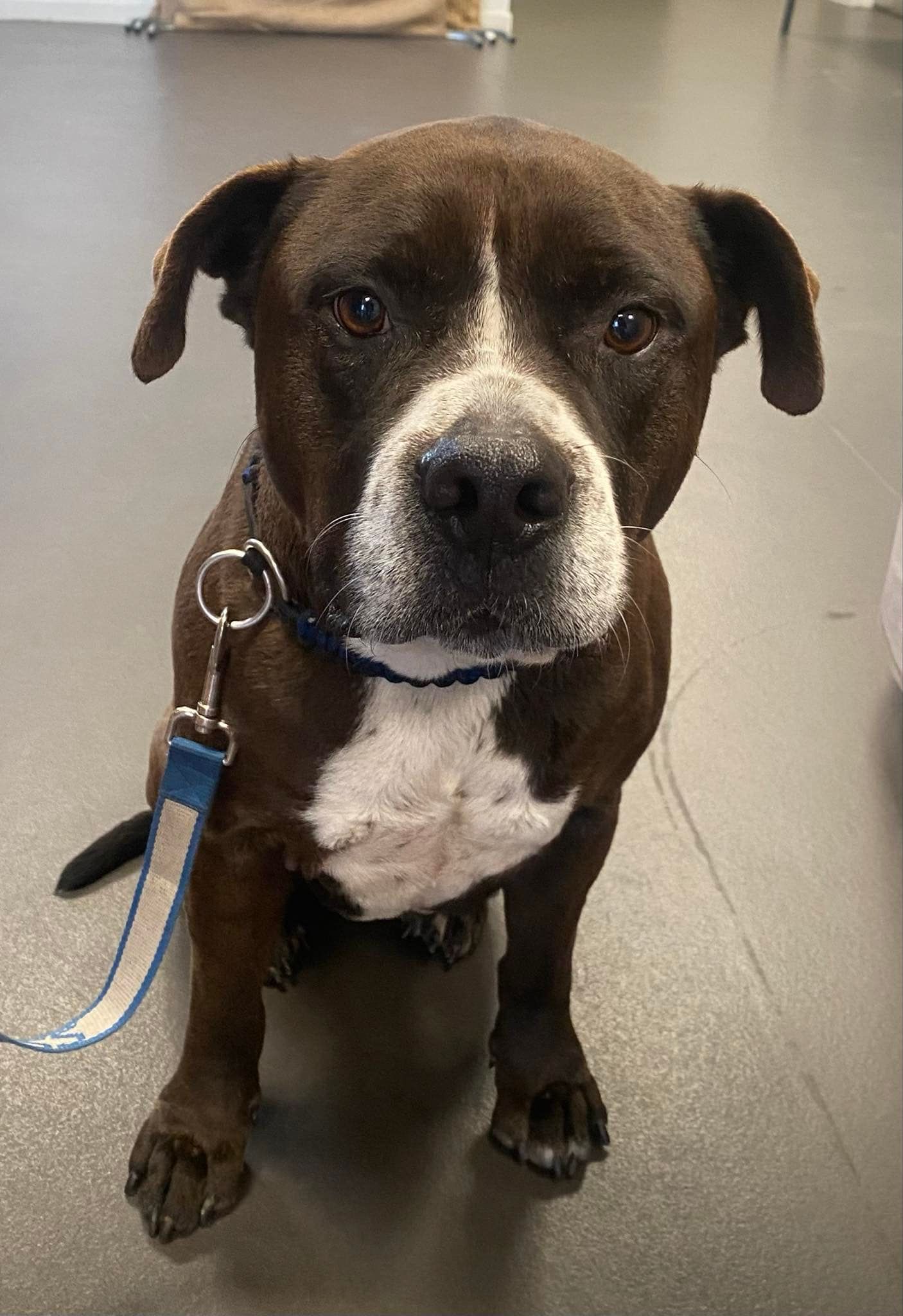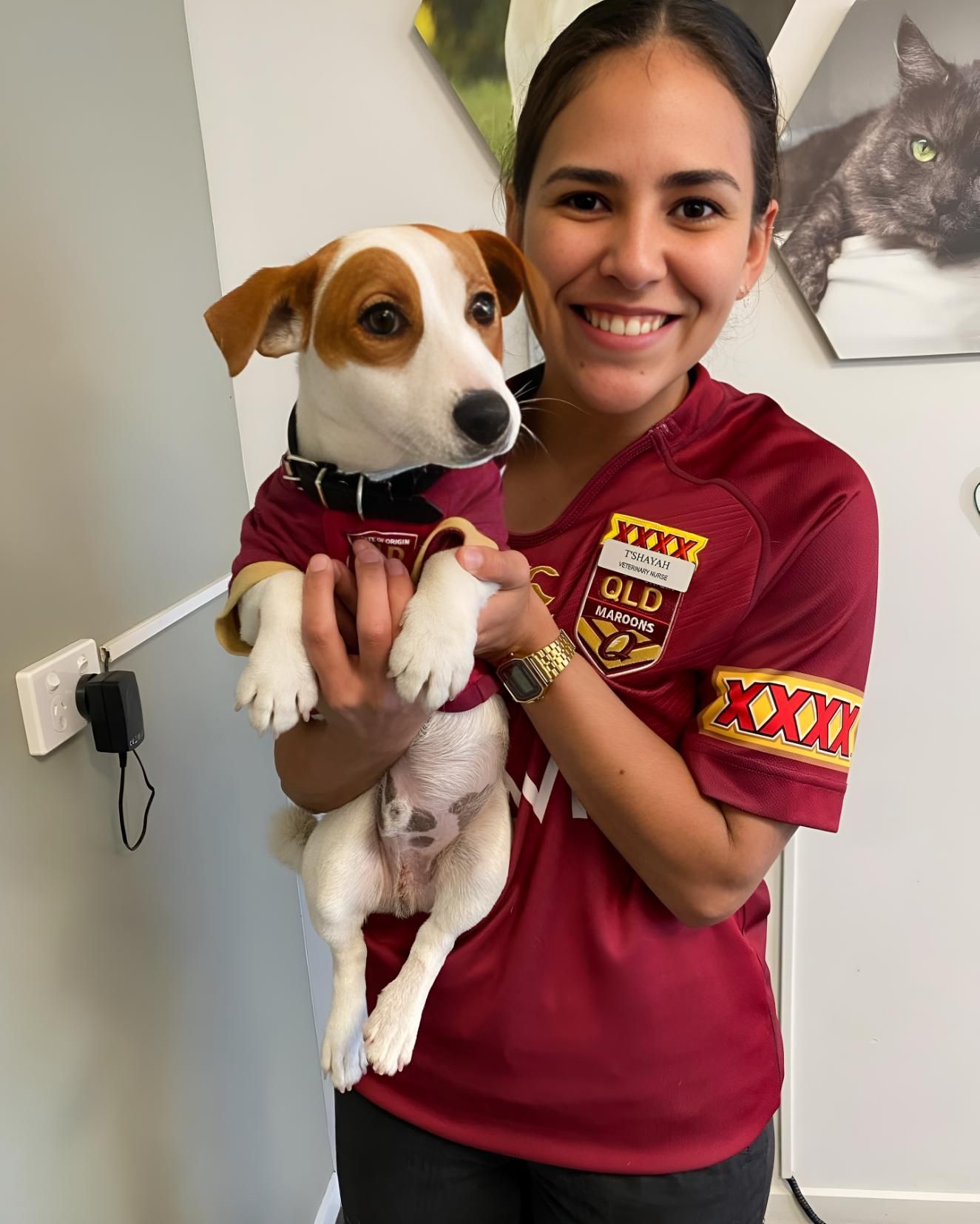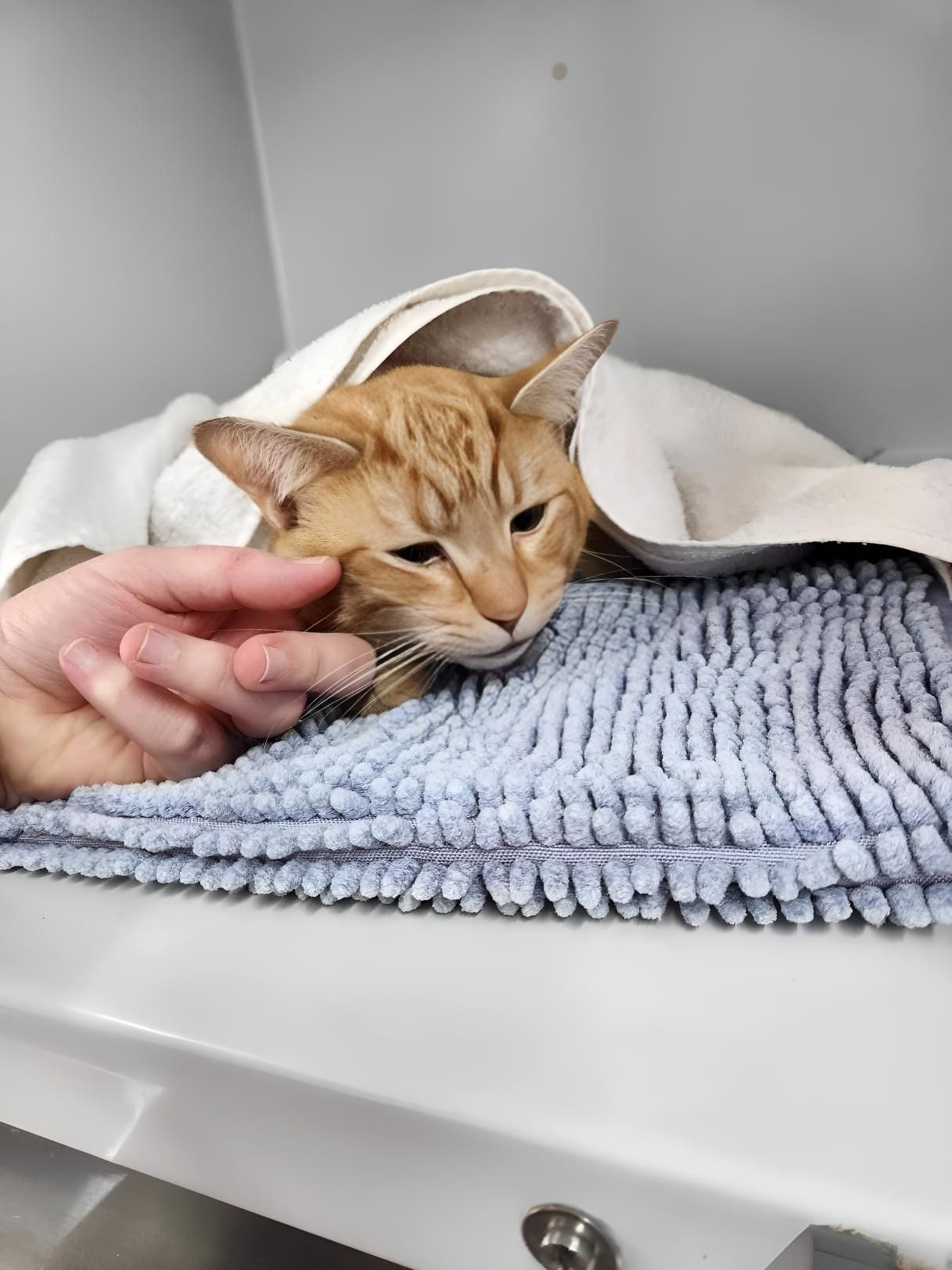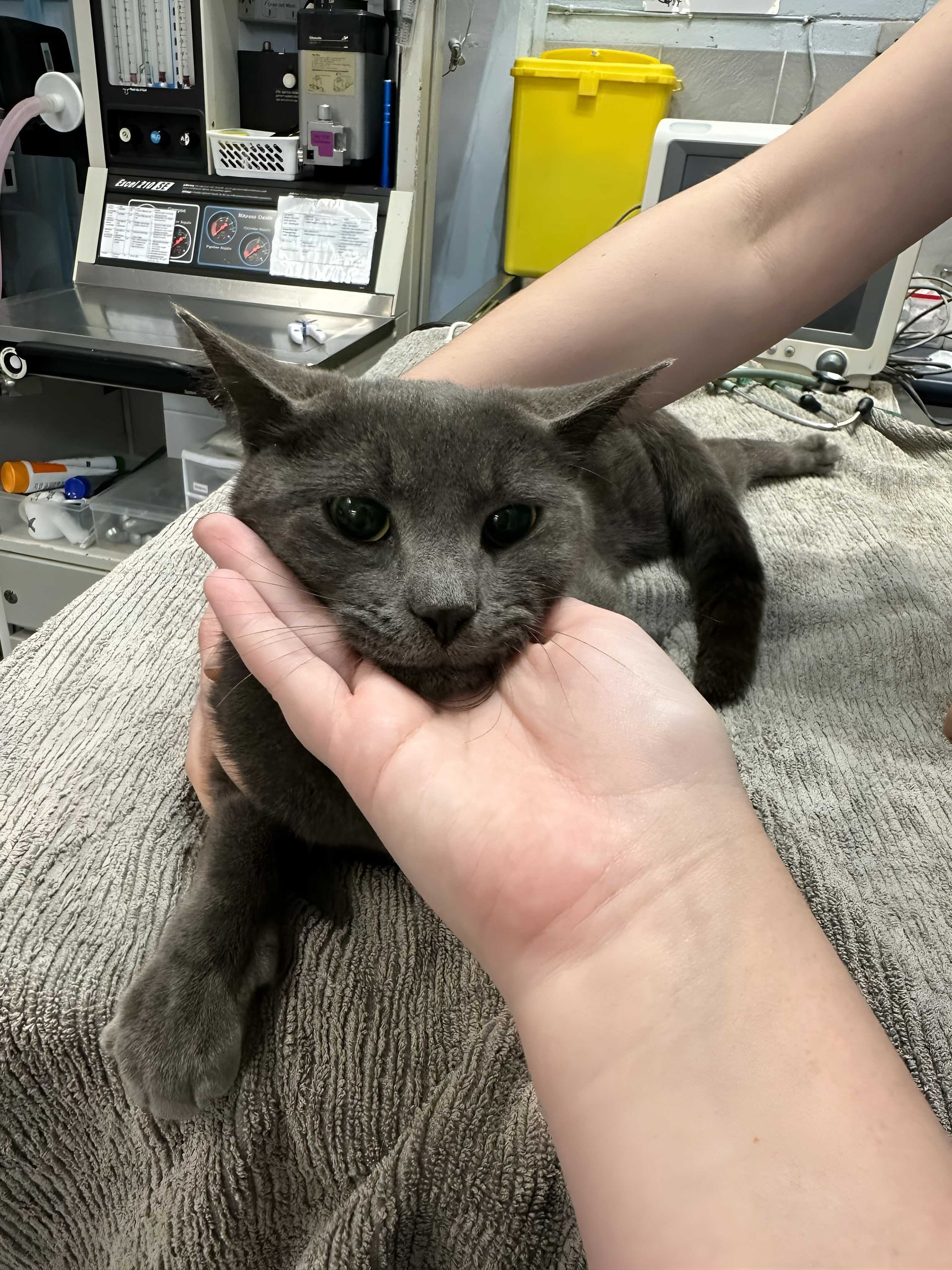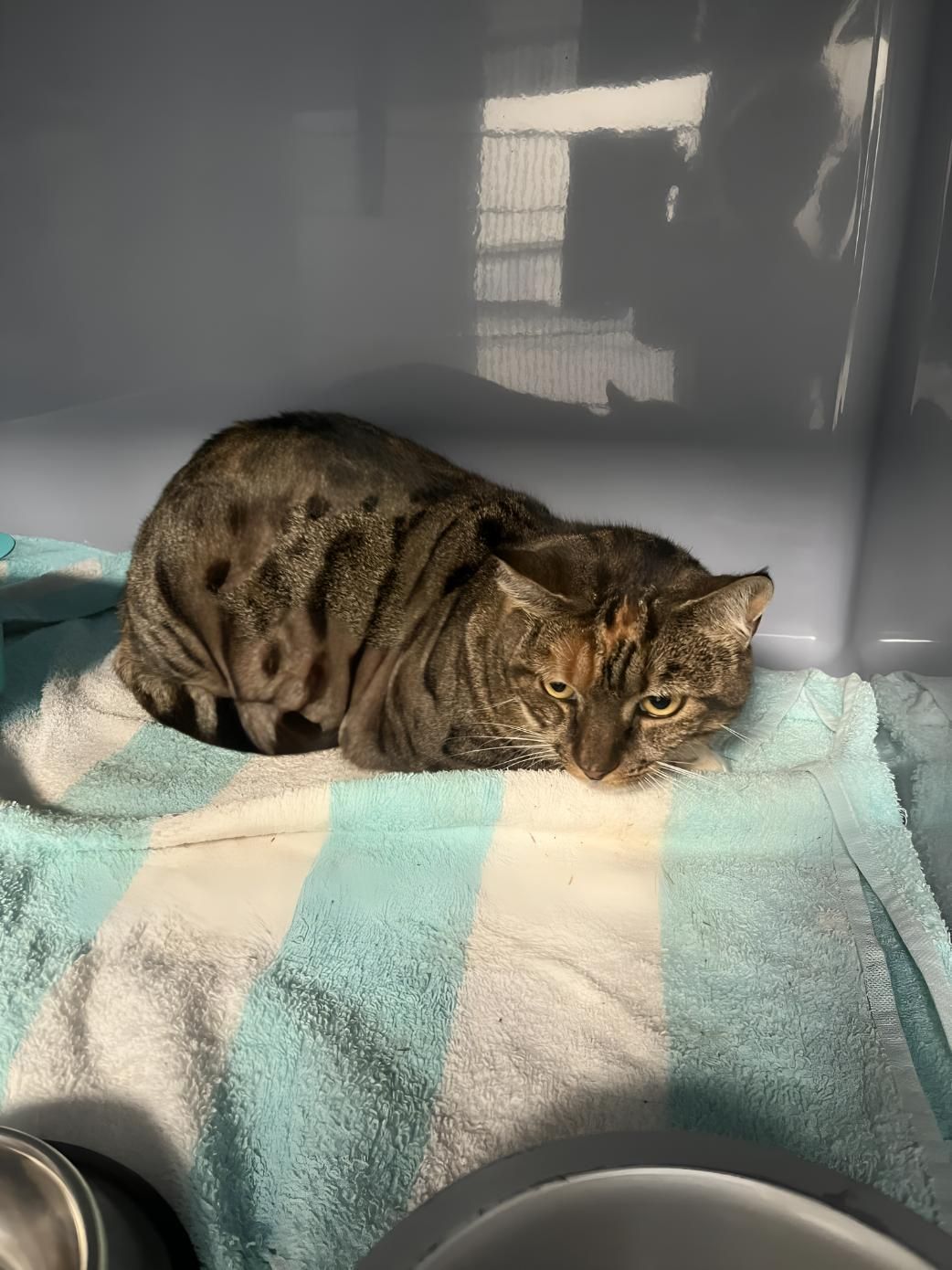Pet Weight Management
Weight Loss
Maintaining a healthy weight is essential for your pet’s overall well-being and longevity. At Valley Vet Surgery, we offer dedicated pet weight management services to help your furry friends achieve and maintain a healthy weight. Our teams in Mackay, Walkerston, and Marian create customised plans tailored to your pet’s needs, including diet advice, portion control, and exercise recommendations.
Excess weight can lead to serious health issues, such as diabetes, joint pain, and reduced energy levels. Our pet weight management programs focus on gradual, sustainable results to keep your pet active, comfortable, and happy.
In addition to weight management, we provide
geriatric care and other services like
parasite treatment,
microchipping,
ultrasounds, and
puppy preschool. Book an appointment online or contact your closest clinic to arrange a weight loss consultation. At Valley Vet Surgery, we’re here to support your pet’s health at every stage of their life.
Family Owned & Operated
Over 20 Years of Pet Health Care
Three Convenient Locations
Small & Large Animals
Book an Appointment Today
Need to save time? Book Online! Book your pet in for a vaccination or consultation in Marian, Mackay or Walkerston.
Pet Obesity: Causes, Signs & Solutions
Obesity is a common nutritional disorder in pets, with 41% of dogs and 33% of cats in Australia affected. It’s defined as being 15% above ideal weight. Signs of obesity in pets include difficulty feeling their ribs, a lack of a defined waist, reluctance to exercise, easy fatigue, and a tendency to eat constantly. These indicators suggest your pet may need support with weight management to improve their overall health and well-being.
Why Pets Overeat:
Pets may overeat for several reasons, including boredom, lack of exercise, or being fed excessive portions. Some pets develop overeating habits due to behavioural issues, such as begging for food or seeking comfort through eating. Pets can also eat out of boredom, stress, or competition in multi-pet households. Medical conditions, like hormonal imbalances or metabolic disorders, can also contribute to an increased appetite. Understanding the root cause of overeating is essential to managing your pet’s diet and ensuring they maintain a healthy weight. Factors like age and breed can also contribute to obesity, but changes in diet and exercise can help. At Valley Vet Surgery, we offer a Pet Fit Program to support sustainable weight loss for pets.
Our Pet Fit Program
Our Pet Fit Program is designed to help your pet achieve and maintain a healthy weight with personalised care and ongoing support.
- Free Initial Consultation: Meet with one of our vet nurses to assess your pet’s current weight and overall health.
- Fortnightly Weigh-Ins: Regular check-ins to track progress and adjust the plan as needed.
- High-Quality Weight Loss Diets: Tailored nutrition plans featuring premium, vet-approved weight loss diets.
- Exercise Plan & 12-Week Support: A customised exercise plan with expert guidance and support over 12 weeks to keep your pet on track.
Our Pet Fit Program supports gradual, sustainable weight loss for your furry companion, helping them live a healthier, more active life. Book your pet’s free consultation today and take the first step towards their well-being.
Health Risks of Obesity
Obesity can have a significant impact on your pet's health and quality of life. Carrying excess weight increases the risk of serious conditions, including:
- Joint & Mobility Issues: Extra weight puts strain on joints, leading to arthritis and reduced mobility.
- Diabetes: Overweight pets are at a higher risk of developing diabetes, which can require lifelong management.
- Heart & Respiratory Problems: Excess fat can affect heart function and make breathing more difficult.
- Reduced Energy Levels: Obesity can leave pets feeling lethargic and less willing to exercise or play.
- Shortened Lifespan: Pets carrying extra weight may have a reduced lifespan and lower overall quality of life.
Managing your pet’s weight is essential to preventing these health risks and ensuring they live a long, active, and happy life.
Geriatric Care
As pets age, their needs change, and they may become more susceptible to health issues. Pets over seven years old are considered geriatric and often develop sub-clinical conditions, meaning problems may exist without obvious symptoms. Early detection is key to managing these conditions effectively.
We recommend regular physical exams and blood tests to monitor your pet’s overall health and detect any underlying issues before they progress. Routine check-ups every six months allow us to screen for age-related concerns such as arthritis, kidney disease, diabetes, and heart conditions. Identifying these problems early gives us the opportunity to implement treatment plans that manage symptoms and slow disease progression.
Our geriatric care approach focuses on improving mobility, managing pain, and providing dietary or lifestyle adjustments to support your pet’s health. By prioritising regular veterinary care, you can help your beloved companion enjoy comfort, happiness, and an excellent quality of life in their golden years.
Common Age-Related Conditions
As pets age, they become more prone to developing a range of age-related conditions that can impact their health and quality of life. Early detection and management are essential to help them remain comfortable and happy in their senior years.
- Arthritis: Joint inflammation and stiffness can reduce mobility, causing pain and difficulty moving.
- Cancer: Older pets are at an increased risk of developing tumours, which may require medical intervention.
- Diabetes: Age and weight can lead to insulin resistance, affecting energy levels and overall health.
- Kidney Failure: A common issue in senior pets that impacts hydration, appetite, and organ function.
- Dental Disease: Poor oral health can lead to pain, infection, and eating difficulties.
- Liver & Intestinal Disorders: Digestive issues and liver disease can affect nutrient absorption and overall well-being.
- Behavioural Issues: Cognitive decline, anxiety, or confusion can affect your pet’s behaviour.
- Vision Problems: Cataracts and other eye conditions can reduce vision, impacting your pet’s daily activities.
Regular veterinary check-ups, combined with proactive care, can help detect and manage these conditions early for better outcomes and long-term health.
Early Warning Signs
As pets age, certain behaviours or physical changes may indicate underlying health issues. Recognising these early warning signs can help detect conditions sooner, allowing for timely intervention and better outcomes.
- Appetite or Weight Changes: Sudden weight gain, loss, or changes in eating habits may signal metabolic or digestive issues.
- Loss of Housetraining: Accidents in the house can indicate urinary problems, kidney disease, or cognitive decline.
- Difficulty Walking or Climbing Stairs: Stiffness or reluctance to move could point to arthritis or joint pain.
- Disorientation or Persistent Cough: Signs of cognitive dysfunction, respiratory issues, or heart conditions.
- New Lumps, Bad Breath, or Vomiting: These may suggest dental disease, gastrointestinal issues, or tumours.
- Ear Issues: Scratching, odour, or discharge may indicate infections or parasites.
- Excessive Drinking or Urination: This could be a sign of diabetes, kidney disease, or hormonal imbalances.
Early detection is key to managing these conditions and helping your pet remain healthy and happy. Regular check-ups allow us to address concerns promptly and provide the best possible care for your beloved companion.


